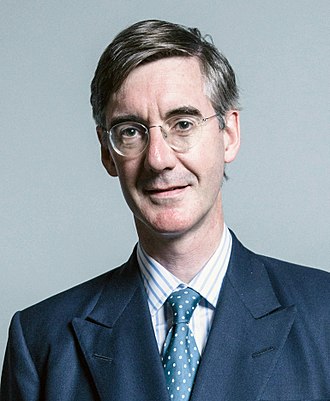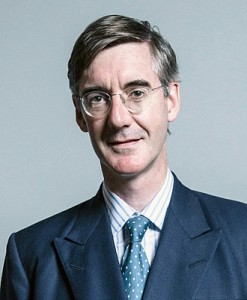Dominic Cummings should keep himself away from the cameras
What on earth was Dominic Cummings trying to achieve last night,…
By Robert Taylor on the July 21st, 2021

According to some of the bookies, Jacob Rees-Mogg is now the favourite among Conservative contenders to succeed Theresa May as Prime Minister, leaving Davis, Johnson, Rudd, Hammond and others trailing in his wake.

This is utterly remarkable. Rees-Mogg has never served in the cabinet or shadow cabinet, says he doesn’t even want to be Prime Minister, and holds views on abortion and nappy-changing that appear so out-dated as to make him, you’d have thought, a raucous political joke.
Yet his poll ratings keep rising.
How on earth did this happen? And where did it begin?
I can’t say I was there right at the start, though I’m sure Rees-Mogg came into this world wearing a tie. But I can say I first set eyes on him at an Oxford Union debate in the late ‘80s. He would have been about 19 years of age, but looked exactly as he does now – a throw-back to the 19th century. He wore a pin-striped double-breasted suit, sported a decorative pocket-square handkerchief, and sounded like William Pitt the elder. He stuck out a bit.
I thought he was ridiculous, and assumed everyone else in the Union that evening felt the same. Indeed, many did. So I was staggered when he was given an award by the assembled dignitaries for the best contribution to the debate. What’s more, the several-hundred-strong audience, usually ready to howl down anyone with right-leaning sympathies, let alone someone who appeared to have jumped straight out of an Evelyn Waugh novel, warmly applauded.
Rees-Mogg quickly became known and recognised by everyone at Oxford during his time as an undergraduate, and remains, to this day, the most memorable student of that era. It’s not as though there wasn’t plenty of competition. Michael Gove was Union President in my first year – a man of boundless intellect and confidence – and it wasn’t so long after Boris Johnson, no less, got everyone’s head turning, while a certain David Cameron lurked in the shadows, belying his subsequent rise to fame.
Yet, noticeable and unforgettable though Rees-Mogg was, I wouldn’t for one moment have dreamed that the extraordinary creation speaking to the Union that night would, 30 years later, be in contention for 10 Downing Street. It would have seemed altogether too weird.
After university, I didn’t see Rees-Mogg again for 20 years. Then, in 2010, he became an MP and started doing occasional broadcast slots, leading eventually to his appearances on that confirmation of celebrity, Have I Got News for You.
And that’s when it all came back to me. The HIGNFY audience reacted to him just as the Oxford Union did in 1989. He still looked and sounded ridiculous, yet they laughed with him, not at him. They listened attentively to his often outlandish views because he conveyed them with such eloquence, charm and sincerity. And they warmed to a man who is so obviously comfortable being so obviously different.
In recent months, as Rees-Mogg’s political stock has risen, so his opinions have been pored over and scrutinised. But whereas many politicians trim according to the political climate, Rees-Mogg sticks firmly and politely to his principles, inspired by strict Catholic teaching. In an age when politicians are trusted less than estate agents, journalists and bankers, his opinions, however outrageous they might be to many, also come across as refreshingly honest.
So, could he go all the way to Number 10? Well, despite his scintillating rise in polls of the Tory members who have the power to put him there, it still seems unlikely. For starters, he would have to be willing to do the job, and there’s no overt sign of that. Secondly, those same Tory members would need to be convinced he could see off Jeremy Corbyn, and they might conclude that a Ruth Davidson or an Amber Rudd would be a better bet. Finally, they might well lose their nerve when forced to mark their cross against the name of a man who is in favour of zero-hours contracts and describes increased access to emergency contraception as “a great sadness”.
Still, the fact that we are even considering the possibility of a Rees-Mogg premiership shows what extraordinary political times we live in.
And if it is Corbyn versus Rees-Mogg next time round, stand by for the most entertaining general election campaign in history.
…………
This article first appeared in the CIPR’s Influence Magazine
November 17th, 2017

What on earth was Dominic Cummings trying to achieve last night,…
By Robert Taylor on the July 21st, 2021

The Class War campaigners who targeted Jacob Rees-Mogg’s young children last…
By Robert Taylor on the September 21st, 2018